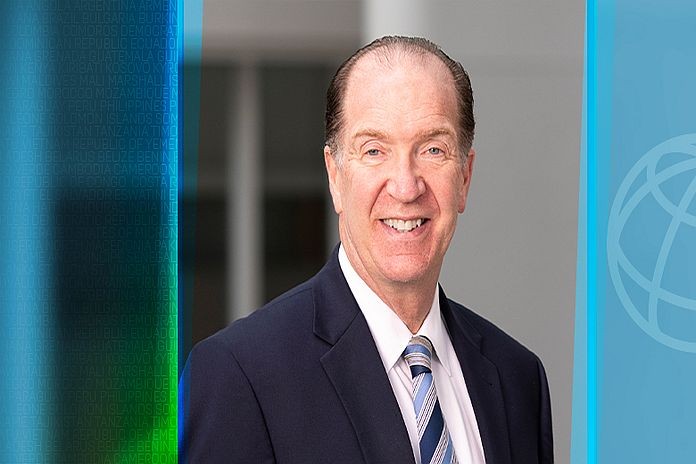-
-
- World Bank Group President David Malpass to the Development Committee – 2022 Annual Meetings
-
WASHINGTON, USA – [Last night], we had a very enjoyable and informative DC dinner to discuss the learning and skills crisis and reversal in development.
I wanted to mention three other near-term risks. First is Russia’s war on Ukraine. With your support, we have mobilized $13 billion and disbursed $11 billion of that support rapidly into Ukraine. We will continue this work, and we invite your financing flows.
The second is food, energy, and fertilizer. The cycle going into 2023 presents a grave danger for the world. We are continuing our rapid ramp-up of support by delivering $30 billion to address food insecurity.
And third is the backsliding on greenhouse gas emissions throughout 2022. There has been sharp increases in the export and burning of coal, oil, and wood – all of which is a grave concern for climate and the world.
I also wanted to address longer-term crises. We can’t only focus on the immediate and need to look longer term as well. One is slower global growth that’s been weighing down countries, particularly, developing countries. The long-term outlook is modest at best and could be even slower. There has been a severe concentration of capital in the world, adding to inequality, which needs to be addressed.
We also need to make progress on debt, debt reduction, and transparency. The debt service expected in 2022 from the IDA countries, the poorest countries in the world, is $44 billion and that is more than the combined resources of the bank and International Monetary Fund (IMF) to these counties. This leaves developing countries without the fiscal space for education, climate adaptation, and other necessary means.
IMF managing director, Kristalina Georgieva and I have put forward several changes on debt. We advocate together for debt transparency; a standstill for countries that are applying for Common Framework treatment; inclusion of all creditors from the beginning of the process; a more prominent role for debtor countries; earlier sharing of the parameters of debt relief and debt sustainability analyses; and finally, comparable treatment among official bilateral and commercial creditors using a common discount rate. We need much more progress on debt.
Another long-term challenge is the need for progress on climate change. It’s been a prominent topic of discussion throughout the annual meetings. We welcome greatly the US contribution to the Clean Technology Fund that was announced this week. We have launched the SCALE trust fund, which we will continue to provide details and invite discussion on, with the goal of achieving verifiable emissions reduction. This has been the missing link in the global system to achieve meaningful emissions reduction.
We’re filling the information gap with our Country Climate and Development Reports, or CCDRs, which form the basis for our future country programs. And we note, with emphasis, the missing gap in the world for global public goods and how for the world to deal with those.
In that context, we particularly welcome the review of the Capital Adequacy Framework and recognize the need for IFIs – especially the World Bank – to increase resource flows.





